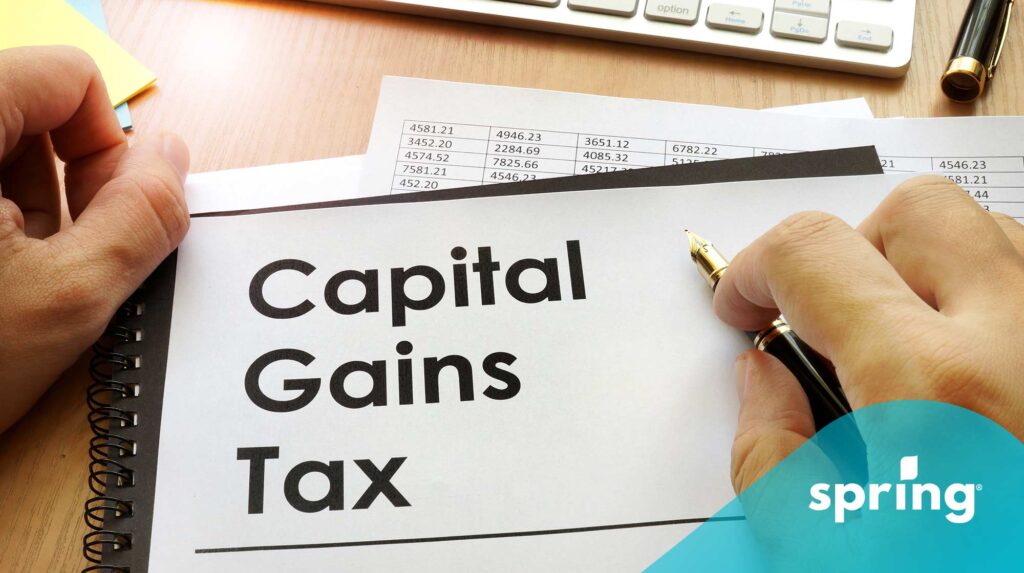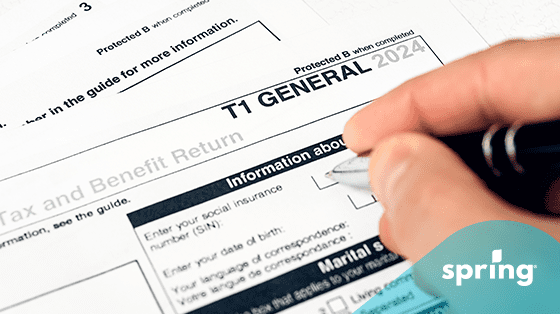Debt Relief Programs
Many Canadians struggle with large amounts of debt and, as inflation gets worse, more and more Canadians are looking for ways to deal with it. A lot of the high interest debt comes from credit cards and payday loans which can seem almost impossible to pay off without any help. This is when people look to the government to see if they can help.
Unfortunately the CRA doesn’t offer any grants or programs to help with debt relief. That does not mean that they don’t support different debt relief options though, or aren’t associated with them. They monitor a lot of these services as well as their associated fees.
Because of this there are a lot of scammers out there that will advertise for free government grants or Canada debt relief grants and take advantage of those looking for programs to help with debt relief. Before you make any debt related decisions it is important to verify that the company is legitimate.
When you are looking to become debt free, it is important to verify that the company is legitimate, but you also want to make sure the solution you are being offered works for you. Before you take any options it may be a good idea to get a second opinion. There are quite a few different debt reduction options out there and you want to be sure you choose the one that not only helps you to reduce your debt, but doesn’t leave you with more negative impacts than positive ones.
Credit Counseling
One way to start dealing with overwhelming debt is to reduce your debt with credit counseling. However, it is usually recommended that you try to consolidate your debt first. This is because it can have a negative impact on your credit score, so it isn’t usually recommended as a first choice.
Credit counseling isn’t a free government grant, but it is free debt advice. How it works is you are paired with Licensed Insolvency Trustees or Credit counselors from not-for-profit organizations or firms. Once you have been paired up, they will go over your debts to see if they are able to help you with a debt management plan. This can involve lowering interest rates, combining and reducing debts wherever possible. They also help you come up with a budget to increase your debt reduction faster.
Debt Consolidation
The first step when it comes to dealing with debt is to consolidate it. How it works is taking all of your debt and combining it to reduce the interest rate as well as your monthly payments. This usually involves taking high interest debt and reducing it by combining it into a lowering interest personal loan. While the amount that you owe stays the same, your interest payments are dramatically reduced making the debt more affordable to pay off. This is called a debt consolidation loan.
Consumer Proposal
A consumer proposal is the only form of debt settlement that is legal in Canada. How it works is Licensed Insolvency Trustee works with your creditors to come up with reasonable payments that you can afford. Often, you can have your debt reduced up to 80%. Keep in mind that a consumer proposal does end up on your credit report and can have a larger negative impact.
That being said, lenders often prefer consumer proposals over bankruptcy because it ensures they are still receiving some money. With a bankruptcy they would not receive anything. That is why consumer proposals are more recommended and bankruptcy is recommended as a last resort.
Bankruptcy
While bankruptcy also isn’t a free government grant, it is legal. This form of debt relief is supported by the Bankruptcy and Insolvency Act. Essentially, bankruptcy is when unmanageable debt is written off in exchange for non-exempt assets. This is because it is expected you would sell what you need to in order to cover certain debts.
Once you have filed for bankruptcy, your debts are then written off and you can restart working on your finances. Bankruptcy can stay on your credit report for around 6 years after it has been completed. You can start rebuilding your credit history with it on your credit report, but it may make it more difficult.
Debt Settlement
In Canada, if your debt becomes unmanageable, sometimes debt settlement can be an option. One way to do this is through a credit counseling program or a debt settlement company. Your counselor can negotiate with the lenders to reduce your debt to a manageable level. The second option is to negotiate with your creditors.
Oftentimes, when a debt has been sold to a collection agency , they will start to contact you to claim the debt. If this happens, many collectors will negotiate with you to form a settlement for a portion of the amount owed, These are not always guaranteed though, you may still need to consider a consumer proposal or even bankruptcy.

Canadian Emergency Debt Relief Program
The Canadian Emergency Debt Relief Program (CEDR) isn’t actually a government program even though it is something you may have heard of. If you search it you won’t actually be able to find anything. This is because it was something a debt assistance provider came up with. It was only really found on social media ads but it gave the impression that it may have been a government program.
Government Debt Relief in Ontario
When it comes to the Ontario government helping out with debt, they do have programs but they only cover certain types of debt. RAP (Repayment Assistance Plan) helps those who are having a hard time paying certain loans. The loans that qualify for this are:
- Canada-Ontario Integrated Student Loans
- Canada Student Loans issued before August 1, 2000
- Ontario Student Loans issued before August 1, 2001
- Part-Time Canada Student Loans
In order to be eligible you must:
- Be a Canadian Resident
- Have loans in good standing
- Have an affordable payment that is less than the current payment
- Fall within the income threshold
This program, however, only applies to those with student loans. It doesn’t apply for high interest debt like loans, credit cards or payday loans. In order to deal with those you would have to go through one of the options listed above.
Other Options for Reducing Debt
If you aren’t quite at the stage yet of going through a consumer proposal or bankruptcy, the first step may be to try for a consolidation loan. This may be difficult due to your credit score though, depending on how much money you owe. If a consolidation loan isn’t quite what you are looking for or you aren’t sure home much you would need, the first thing you should do is make of list of what you owe. This list will likely have things like:
- Credit card payments
- Car payments
- Mortgage payments
- Loan payments
- Line of credit payments
The next thing to do would be to make a budget. Show what you can pay monthly compared to what you earn. After that, if you have chosen or weren’t approved for a consolidation loan, it is recommended to pay off the highest interest debt first. Once you have that paid off, then you can put the extra payments onto the next debt until you have tackled them all.
Until you have a handle on your debt, it is recommended that you avoid taking anymore out, unless you are using it to consolidate your current debt.
How to Prevent Incurring High Debt Levels
While sometimes debt just can’t be avoided, there are some things you can do to keep yourself in check.
- Keep your credit cards low
- Cancel debt as you pay it off
- Cancel unused subscriptions
- Avoid “buy now pay later” plans
These are just a few things to do, but it is really important to keep track of your finances. Figure out what goes in and what comes out. It is also ideal to avoid spending money you don’t have. Sometimes this is unavoidable, but sometimes a purchase isn’t necessary and can wait until you have the money.
Create a saving account to help you save for those unexpected expenses. Write it into your budget. That way you are less likely to spend the money. You can even set it up to be automatically transferred, saving you from factoring it into your budget at all.
It may not be realistic to have no debt, especially since credit lines are required to build up your credit score, but having an accurate picture of your financial situation can make a big difference. Before you take out any form of debt, be sure you can realistically afford it. This can help to avoid any situations where you are unable to pay the debt back.
Can Spring Financial Help?
If you are looking for a personal loan to consolidate your debt, also known as debt consolidation loans, well we can help! Spring Financial specializes in personal loans for all credit types. We offer loans from $500 to $35,000 that you can apply for in just a few minutes. On top of that, you can receive your funds the same day as approval.
Taking a loan with us to pay off your high interest debt can not only help you to reduce your overall interest, it also turns your debt into one affordable monthly payment making it much more manageable. Because we work with all credit types, we are able to find a financial product that will also help you to increase your credit score.
All of our products report monthly to both credit bureaus: Transunion and Equifax. This means that taking out a personal loan will not only help you make your debt manageable, but it will increase your credit score by helping to outweigh some of the negative tradelines on your credit report. Apply online today or give us a call as 1-888-781-8439.








